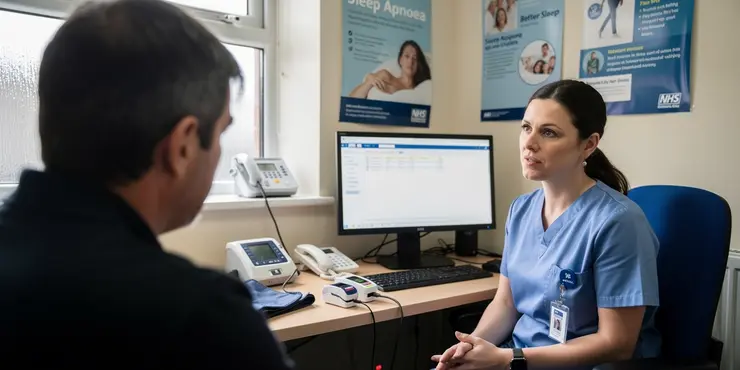
Find Help
More Items From Ergsy search
-
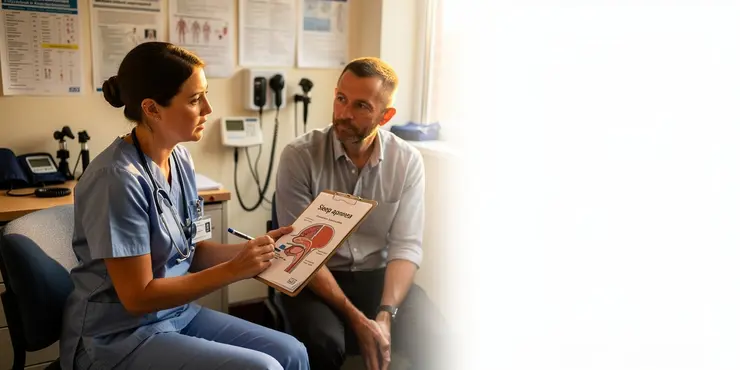
What is sleep apnoea?
Relevance: 100%
-
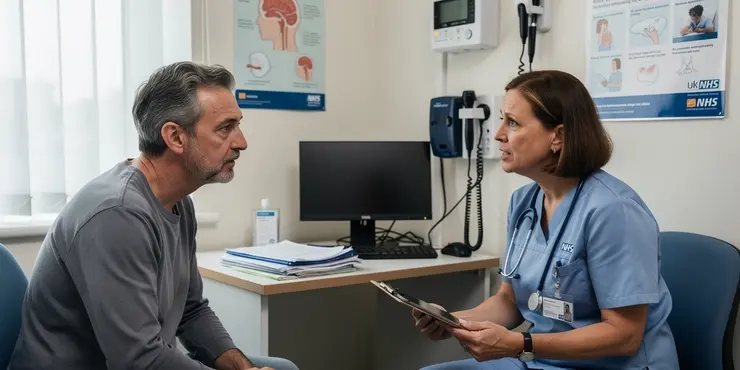
What is sleep apnea?
Relevance: 100%
-
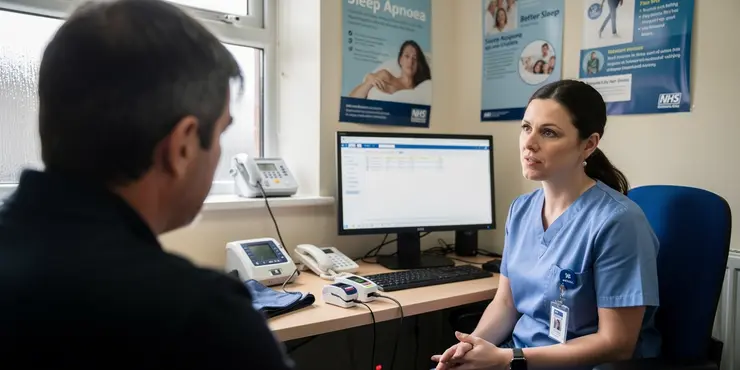
How common is sleep apnea?
Relevance: 96%
-
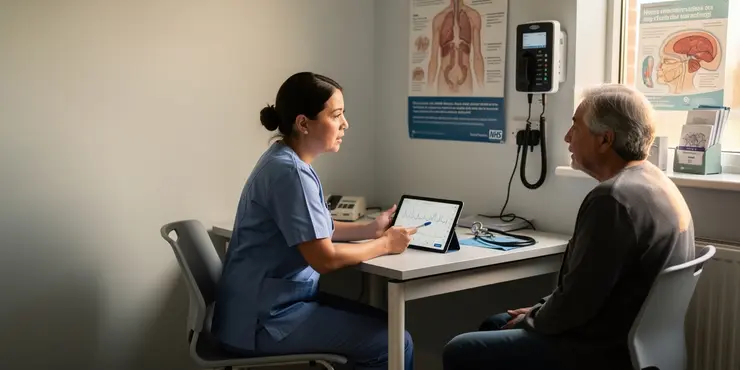
Can sleep apnea be cured?
Relevance: 95%
-
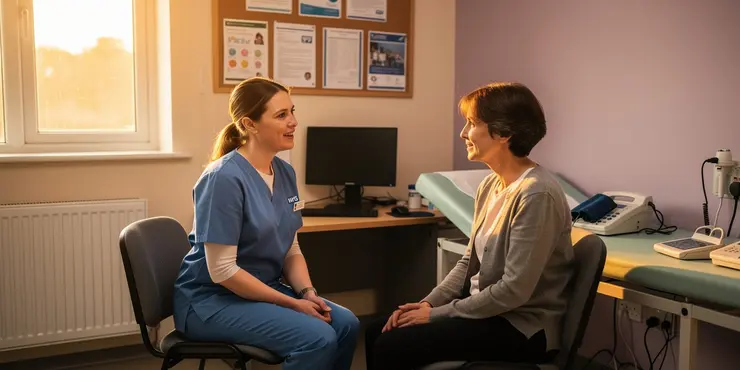
Why is sleep apnea dangerous?
Relevance: 95%
-
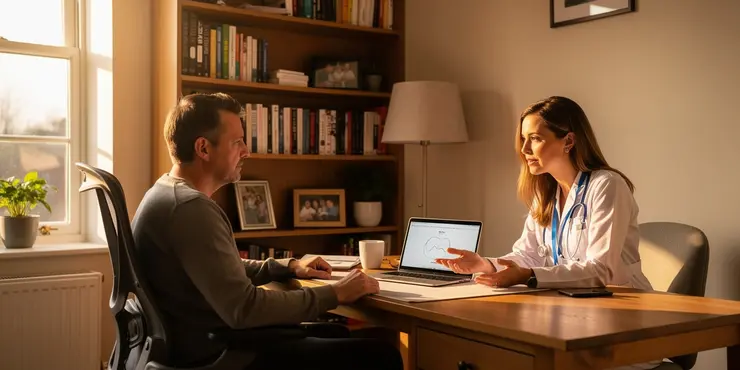
How is sleep apnea diagnosed?
Relevance: 95%
-
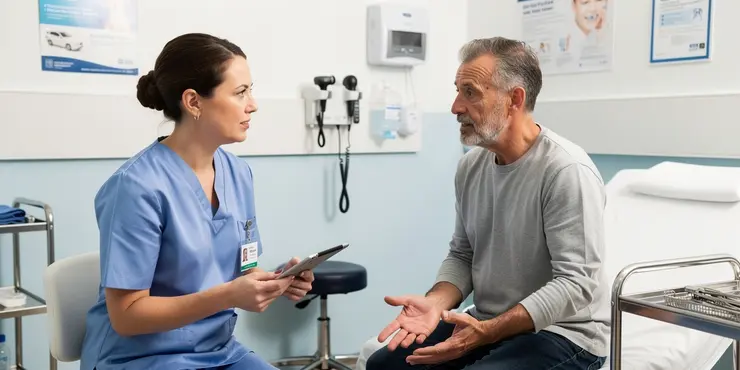
What are the main types of sleep apnea?
Relevance: 92%
-
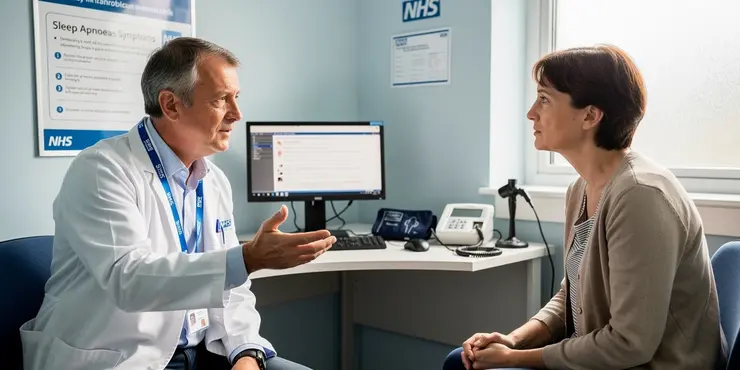
What are common symptoms of sleep apnea?
Relevance: 92%
-
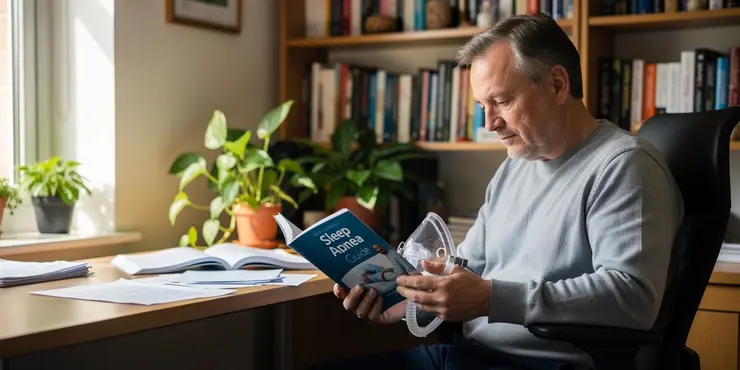
What is complex sleep apnea syndrome?
Relevance: 92%
-
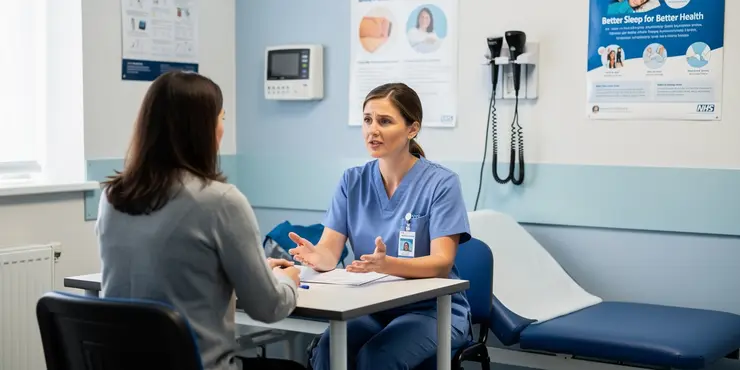
Can alcohol worsen sleep apnea?
Relevance: 92%
-
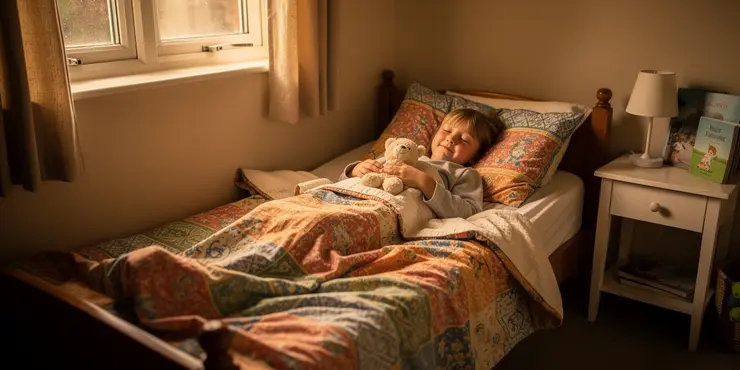
Can children have sleep apnea?
Relevance: 92%
-
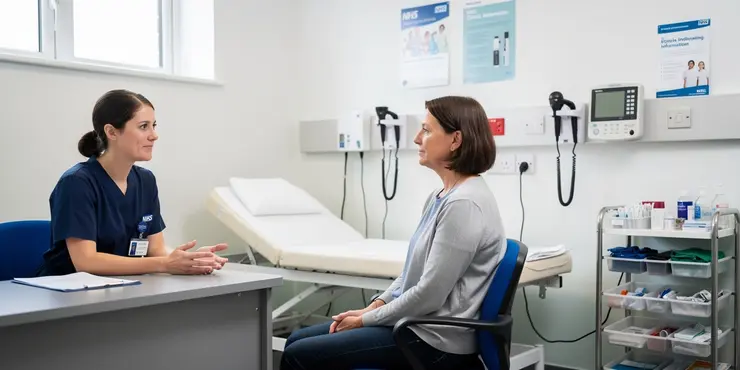
What is complex sleep apnea syndrome?
Relevance: 91%
-
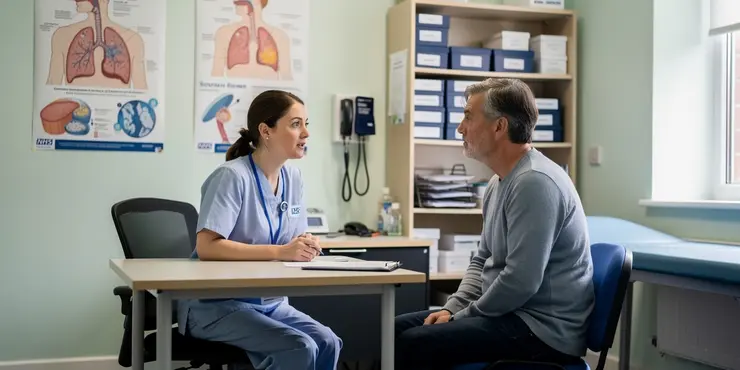
Is snoring always a sign of sleep apnea?
Relevance: 91%
-
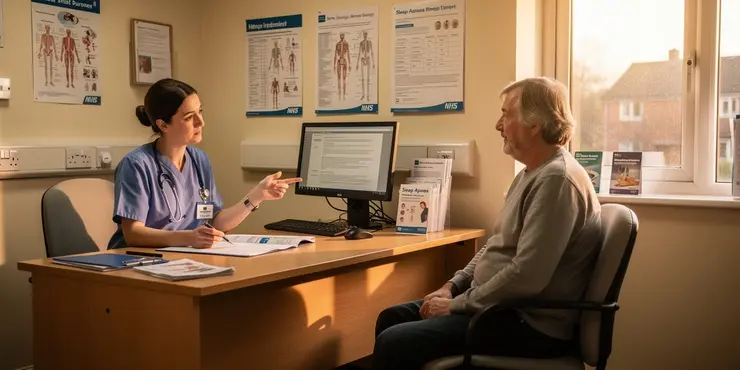
What treatments are available for sleep apnea?
Relevance: 91%
-
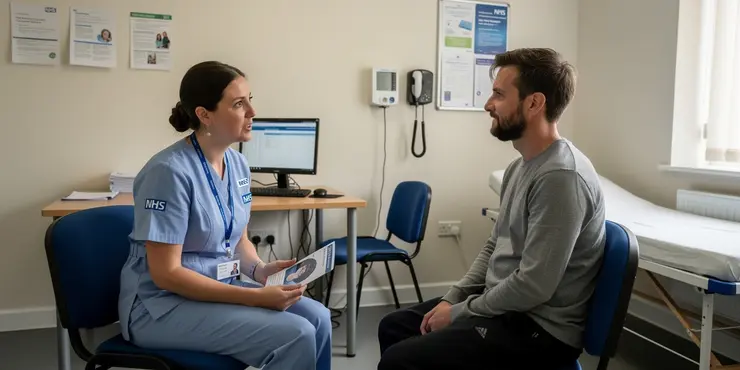
Is CPAP the only treatment for sleep apnea?
Relevance: 91%
-
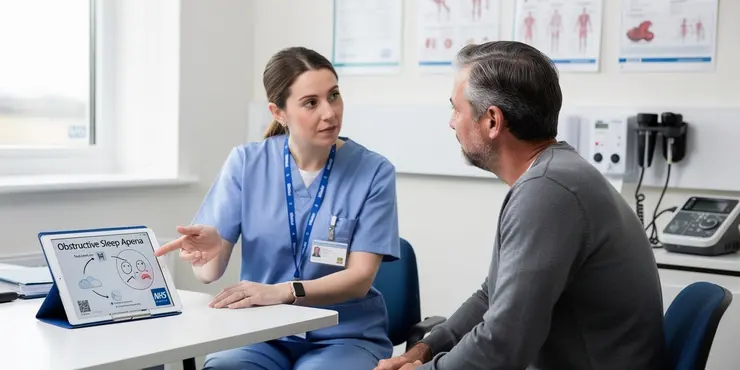
What causes obstructive sleep apnea?
Relevance: 90%
-
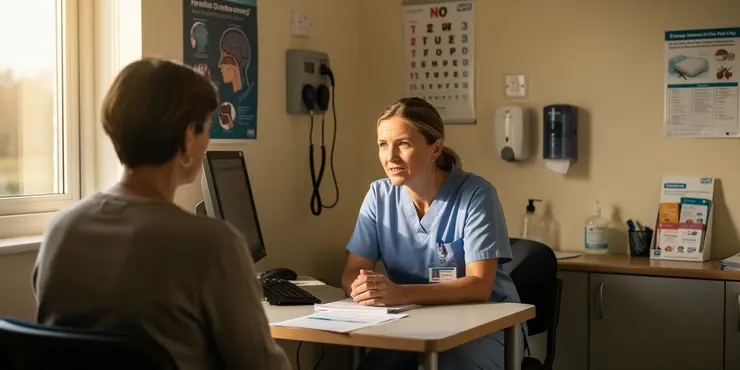
Does sleep apnea occur only in adults?
Relevance: 89%
-

What are risk factors for developing sleep apnea?
Relevance: 89%
-
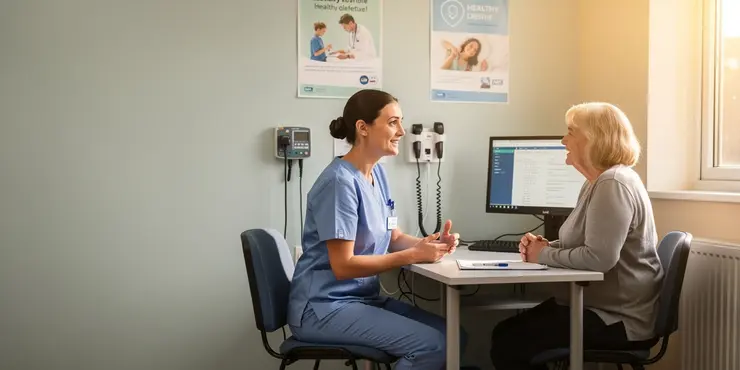
Can weight loss improve sleep apnea?
Relevance: 88%
-
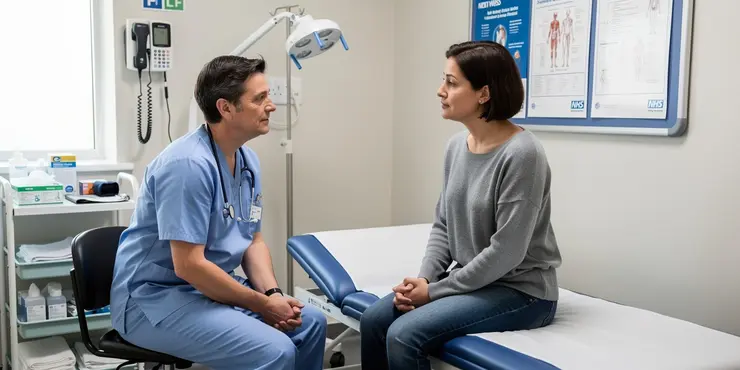
What should I do if I suspect I have sleep apnea?
Relevance: 88%
-
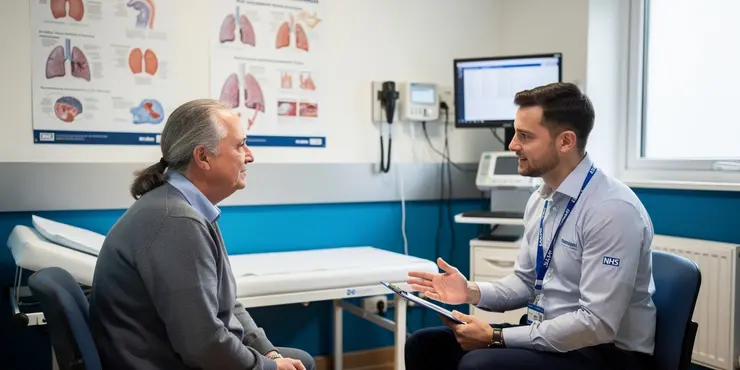
Am I eligible to try the new sleep apnea chip?
Relevance: 87%
-
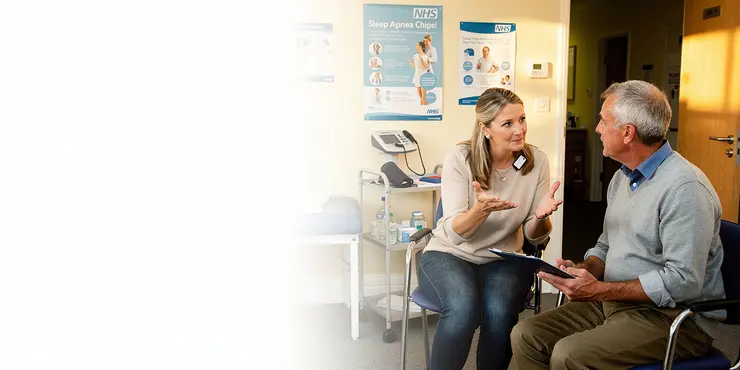
How does the new Sleep Apnea Chip work?
Relevance: 84%
-
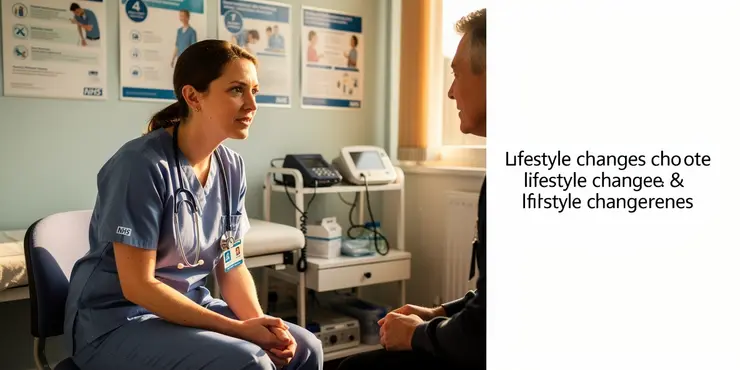
What lifestyle changes can help manage sleep apnea?
Relevance: 83%
-
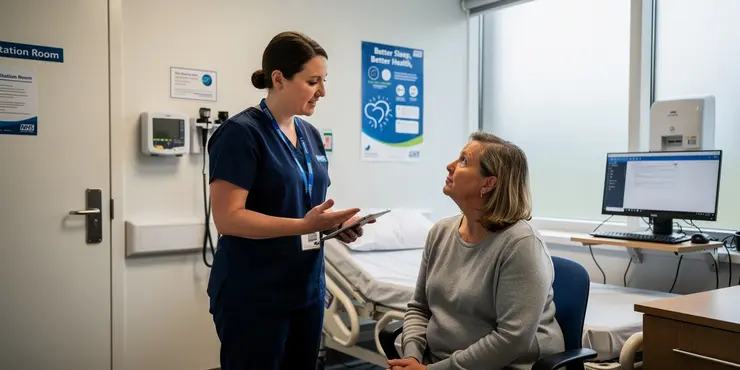
Introduction to obstructive sleep apnoea
Relevance: 71%
-
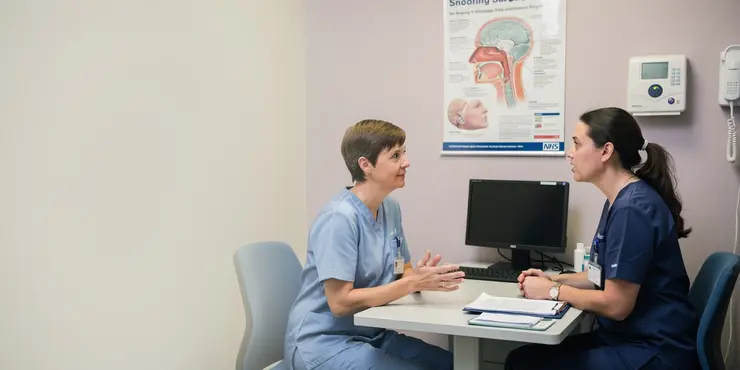
Evidence-Based Interventions: snoring surgery in the absence of Obstructive Sleep Apnoea (OSA)
Relevance: 64%
-
What is sleep apnoea?
Relevance: 51%
-
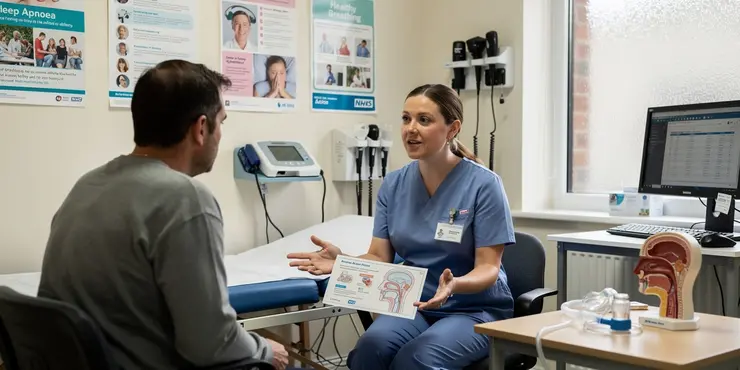
How does central sleep apnea differ from obstructive sleep apnea?
Relevance: 46%
-
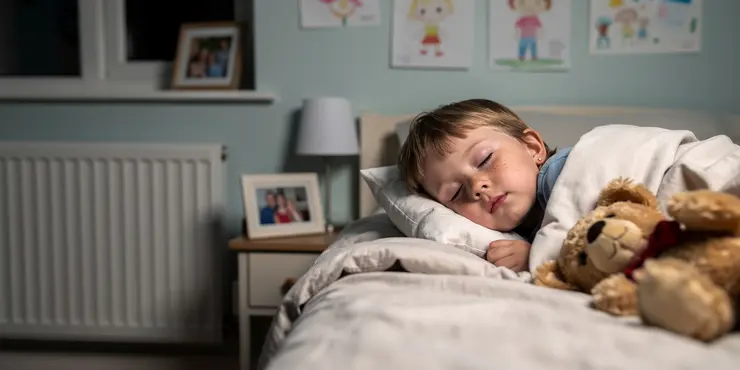
The Importance of Sleep for All Ages
Relevance: 41%
-
How does sleep quality relate to menopause symptoms?
Relevance: 40%
-
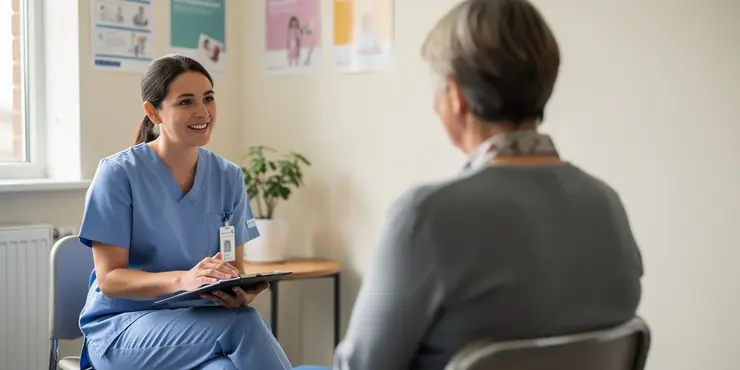
Does screen time affect both sleep onset and sleep maintenance?
Relevance: 38%
-
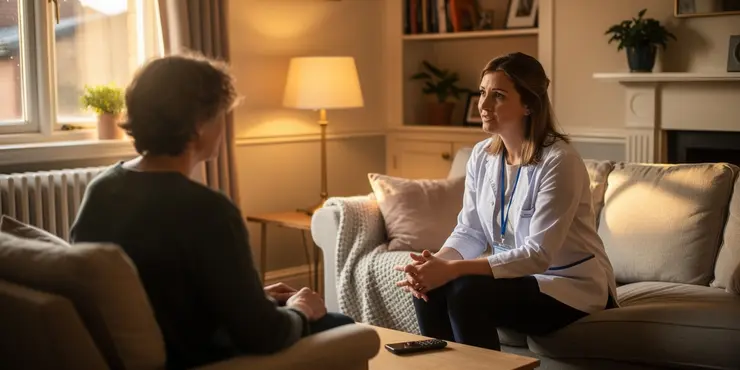
Top Tips to Help You Get a Good Nights Sleep
Relevance: 38%
-
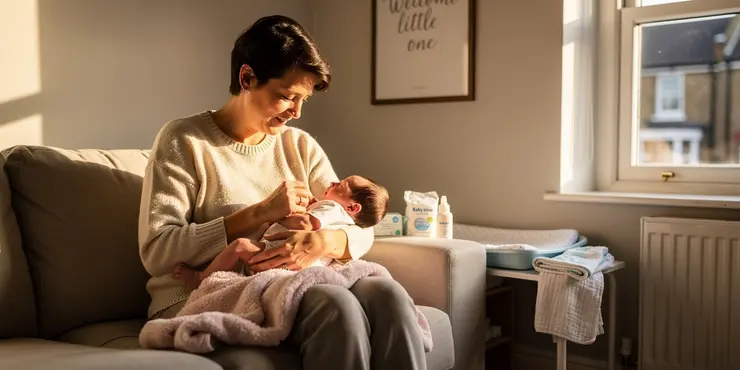
Are baby sleep pillows safe?
Relevance: 37%
-
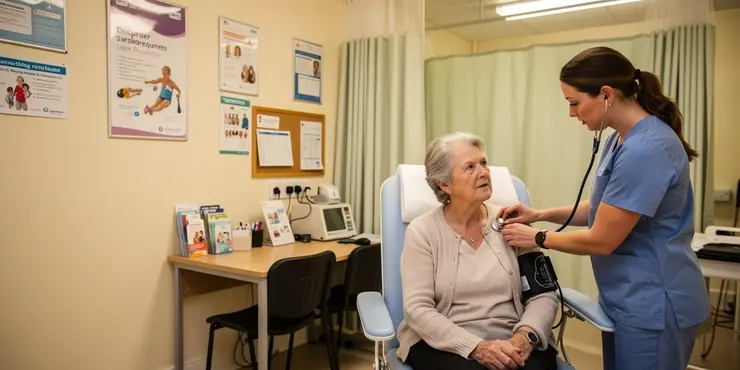
Is it safe to sleep after a concussion?
Relevance: 36%
-
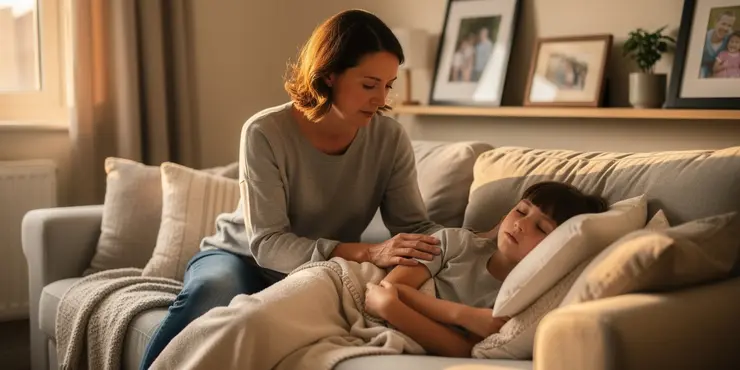
Is it safe to sleep after a concussion?
Relevance: 36%
-
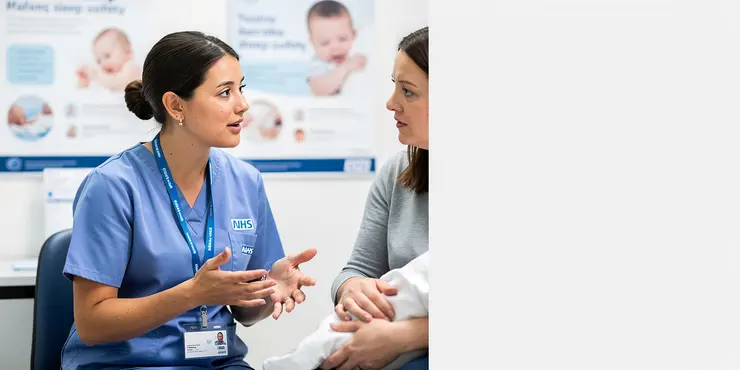
Is it okay to use a baby sleep positioner?
Relevance: 36%
-
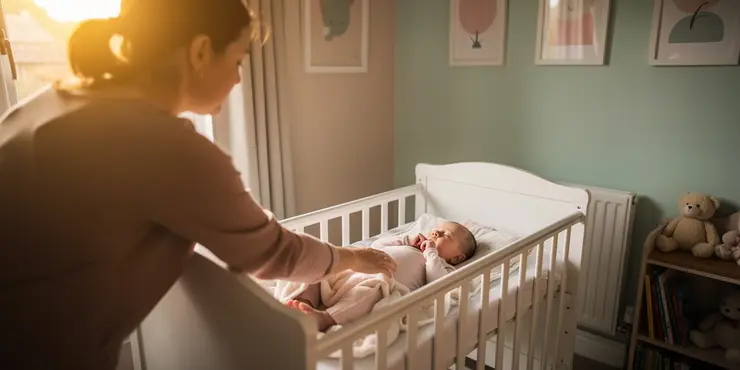
What is the safest sleep environment for an infant?
Relevance: 36%
-
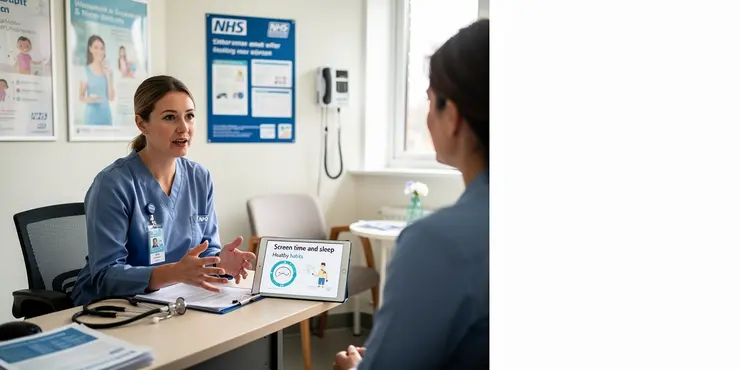
Does screen time impact REM sleep?
Relevance: 35%
-
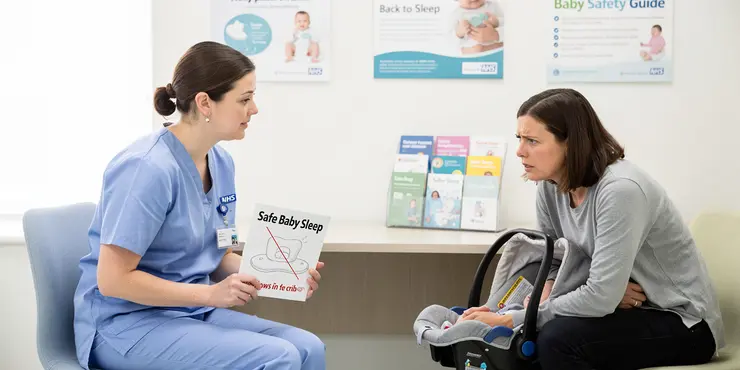
Why are baby sleep pillows not safe for infants?
Relevance: 34%
-
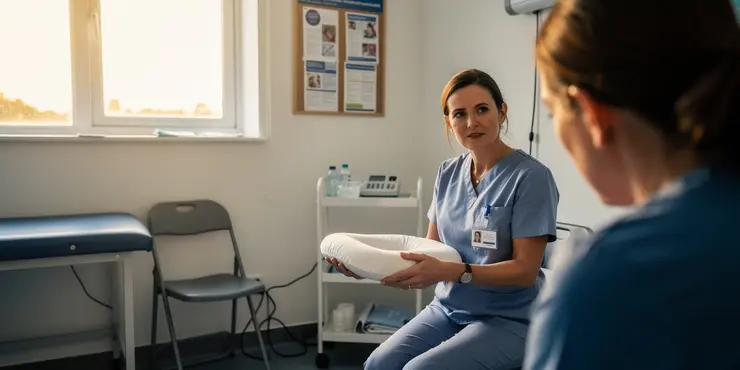
Are there any benefits to using baby sleep pillows?
Relevance: 34%
-
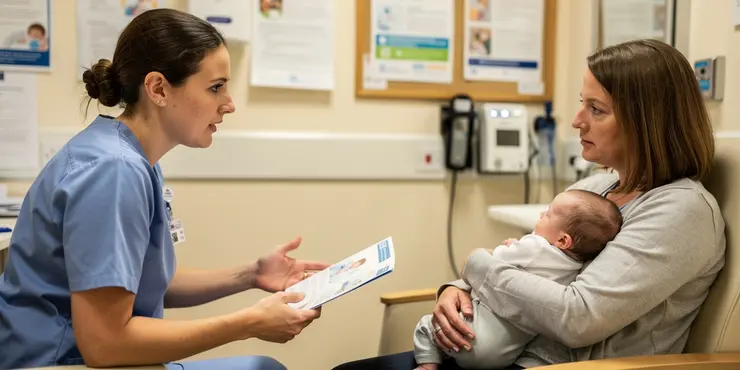
What are the risks associated with baby sleep pillows?
Relevance: 34%
Understanding Sleep Apnea
Sleep apnea is a common sleep disorder characterised by repeated interruptions in breathing during sleep. These interruptions, known as apneas, can last from a few seconds to minutes and may occur up to a hundred times or more in a night. There are three main types of sleep apnea: obstructive sleep apnea (OSA), central sleep apnea (CSA), and complex sleep apnea syndrome, which is a combination of the other two.
Prevalence of Sleep Apnea in the UK
In the UK, sleep apnea is increasingly being recognised as a prevalent issue affecting many individuals. Obstructive sleep apnea is the most common form, and it is estimated that around 1.5 million people in the UK are currently living with the condition. However, studies suggest that a significant number of cases remain undiagnosed, with some estimates indicating that up to 80% of OSA cases are not yet identified. This means that the actual prevalence of sleep apnea may be much higher.
Risk Factors and Demographics
Several risk factors contribute to the development of sleep apnea. These include obesity, a major risk factor, as excessive body weight can lead to obstruction of the airway. Other contributors include age, with older adults being more susceptible, and certain physical traits such as a thicker neck circumference. Men are also more likely to suffer from sleep apnea than women, although the risk for women increases post-menopause. Additionally, lifestyle factors such as smoking and alcohol consumption can exacerbate the condition. Sleep apnea is known to affect adults more commonly, though it can also occur in children, with paediatric cases often linked to enlarged tonsils or adenoids.
Health Implications and Awareness
Sleep apnea poses various health risks if left untreated. It has been associated with an increased risk of cardiovascular diseases, diabetes, and high blood pressure. Furthermore, the disorder can significantly affect quality of life, leading to daytime fatigue, reduced concentration, and increased risk of accidents. One of the main challenges in addressing sleep apnea in the UK is raising awareness, as many individuals experiencing symptoms may not recognise them as being indicative of a sleep disorder. Common symptoms include loud snoring, observed episodes of stopped breathing, gasping for air during sleep, and excessive daytime sleepiness.
Diagnosis and Treatment
Diagnosing sleep apnea typically involves an overnight sleep study known as a polysomnography, which records various body functions during sleep. Treatment options vary depending on the severity and type of sleep apnea. Lifestyle changes, such as weight loss and avoiding alcohol, are often recommended. The most common treatment for moderate to severe OSA is continuous positive airway pressure (CPAP) therapy, which uses a machine to provide a steady flow of air to keep the airways open. For those with less severe cases, dental devices or surgery may be considered.
Understanding Sleep Apnea
Sleep apnea is a problem that happens when you stop breathing while you sleep. This can happen many times during the night, and it makes sleeping hard. There are three types of sleep apnea: obstructive sleep apnea (OSA), central sleep apnea (CSA), and complex sleep apnea, which is a mix of both.
How Common is Sleep Apnea in the UK?
In the UK, many people have sleep apnea, but many don’t know it. The most common type is obstructive sleep apnea. About 1.5 million people have it in the UK, but many more have not been diagnosed yet. This means the real number of people with sleep apnea might be much higher.
Who Can Get Sleep Apnea?
Some things make it more likely to get sleep apnea. Being overweight is a big reason because it can block the airway. Older people and people with thicker necks also have a higher chance of having it. Men get sleep apnea more than women, but women’s chances go up after menopause. Smoking and drinking alcohol can make it worse. Sleep apnea mostly affects adults, but kids can have it too, often because of big tonsils.
How Does Sleep Apnea Affect Health?
If you do not treat sleep apnea, it can make you sick. It can lead to heart disease, diabetes, and high blood pressure. It can also make you very tired during the day and make it hard to focus. Some people might not know they have sleep apnea. Signs to watch for are loud snoring, choking, waking up a lot, and being very sleepy during the day.
Finding and Treating Sleep Apnea
Doctors can find out if someone has sleep apnea with a special sleep test called a polysomnography. Treatment depends on how serious it is. Losing weight and not drinking alcohol are good first steps. For more serious sleep apnea, a machine called CPAP helps keep the airway open at night. There are also special dental devices or surgery for less serious cases.
Frequently Asked Questions
What is sleep apnea?
Sleep apnea is a sleep disorder characterized by repeated interruptions in breathing during sleep.
How common is sleep apnea in adults?
Sleep apnea affects approximately 2% to 9% of adults in the general population, but its prevalence can be higher depending on specific populations or risk factors.
Is sleep apnea more common in men or women?
Sleep apnea is more common in men than in women, although the prevalence in women increases after menopause.
What are the different types of sleep apnea?
There are three types of sleep apnea: obstructive sleep apnea (OSA), central sleep apnea (CSA), and complex sleep apnea syndrome.
How common is obstructive sleep apnea (OSA)?
Obstructive sleep apnea is the most common form, affecting about 4% of middle-aged men and 2% of middle-aged women.
How common is central sleep apnea (CSA)?
Central sleep apnea is less common than obstructive sleep apnea and often occurs in individuals with certain medical conditions or those using certain medications.
What are the risk factors for sleep apnea?
Risk factors include obesity, age, gender, neck circumference, family history, alcohol use, smoking, and nasal congestion.
How does obesity affect the likelihood of sleep apnea?
Obesity is a significant risk factor for sleep apnea. Excess weight can contribute to airway obstruction, leading to breathing difficulties during sleep.
What age group is more likely to experience sleep apnea?
Sleep apnea is more common in older adults, particularly in those over the age of 60.
Can children have sleep apnea?
Yes, children can also have sleep apnea, though it's less common than in adults. It often presents differently in children and is frequently associated with enlarged tonsils or adenoids.
How is sleep apnea diagnosed?
Sleep apnea is typically diagnosed through a sleep study, also known as polysomnography, which monitors various bodily functions during sleep.
What are the common symptoms of sleep apnea?
Common symptoms include loud snoring, episodes of breathing cessation during sleep, abrupt awakenings with gasping, excessive daytime sleepiness, and morning headaches.
What percentage of people with sleep apnea are undiagnosed?
It is estimated that up to 80% of moderate to severe cases of sleep apnea remain undiagnosed.
Is sleep apnea associated with other health conditions?
Yes, sleep apnea is associated with conditions such as hypertension, heart disease, stroke, diabetes, and obesity.
How does sleep apnea affect daily life?
Sleep apnea can lead to poor sleep quality, resulting in daytime fatigue, impaired concentration, and increased risk of accidents.
Can lifestyle changes help manage sleep apnea?
Yes, lifestyle changes such as weight loss, quitting smoking, and sleeping on one’s side can help manage mild cases of sleep apnea.
Are there treatments available for sleep apnea?
Yes, treatments include continuous positive airway pressure (CPAP) therapy, oral appliances, surgery, and lifestyle modifications.
Is snoring always a sign of sleep apnea?
Not necessarily. While snoring is a common symptom of sleep apnea, not all snorers have sleep apnea. It is important to evaluate other symptoms and risk factors.
How can one reduce the risk of developing sleep apnea?
Maintaining a healthy weight, avoiding alcohol and sedatives before bedtime, and addressing nasal congestion can help reduce the risk of developing sleep apnea.
Why is it important to treat sleep apnea?
Treating sleep apnea is important because it improves sleep quality and reduces the risk of developing other serious health conditions associated with untreated sleep apnea.
What is sleep apnea?
Sleep apnea means a person stops breathing for short times when they sleep. This can happen many times during the night.
If you have sleep apnea, you might feel very tired during the day. You might also snore a lot at night.
To learn more or get help, you can talk to a doctor. You can also use apps or videos that explain sleep apnea in a simple way.
Sleep apnea is when a person’s breathing stops many times while they sleep.
How many adults have sleep apnea?
Sleep apnea is a problem where people stop breathing while they sleep. This can happen a lot, and it can make people very tired. It affects about 2 to 9 out of every 100 adults. Some groups of people might have it more often, especially if they have certain health problems.
If you have trouble reading, ask someone to help you. You can also use tools that read the text out loud for you.
Do more men or women have sleep apnea?
More men than women have sleep apnea. But when women get older and stop having periods, more women have it too.
What kinds of sleep apnea are there?
There are different kinds of sleep apnea. Sleep apnea is when someone stops breathing for a short time during sleep. Here are the main kinds:
- Obstructive sleep apnea: This is when the airway gets blocked. The person might be snoring or gasping for air.
- Central sleep apnea: This is when the brain does not send the right signals to the muscles that help you breathe.
- Complex sleep apnea: This is a mix of both obstructive and central sleep apnea.
To help understand sleep apnea, you might watch videos, listen to explanations, or use picture stories. Talk to a doctor if you think you have sleep apnea.
There are three kinds of sleep apnea:
1. Obstructive Sleep Apnea (OSA)
2. Central Sleep Apnea (CSA)
3. Complex Sleep Apnea Syndrome
If you have trouble reading, you could try using audiobooks or a reading pen.
How many people have sleep apnea?
Lots of people have sleep apnea. This means they stop breathing for a short time while sleeping.
If you think you might have it, you can talk to a doctor. They can help you.
Using breathing machines can help you sleep better. They are called CPAP machines.
Obstructive sleep apnea is a type of sleep problem. It happens to about 4 out of every 100 middle-aged men and 2 out of every 100 middle-aged women.
How many people have central sleep apnea (CSA)?
Central sleep apnea is not as common as obstructive sleep apnea. It often happens to people who have certain health problems or take certain medicines.
What makes sleep apnea more likely?
Here are some things that can make sleep apnea more likely:
- Being older. Sleep apnea happens more in older people.
- Being overweight. Extra weight can cause sleep apnea.
- Family history. If your family has sleep apnea, you might too.
- Being male. Men are more likely to have sleep apnea.
If you think you have sleep apnea, talk to a doctor.
Things that can make someone more at risk include being very overweight, being older, being male or female, having a thick neck, having family members with the same problem, drinking alcohol, smoking, and having a stuffy nose.
How does being very overweight affect sleeping problems?
People who are very overweight can have trouble sleeping. This is called sleep apnea. Sleep apnea means stopping breathing for a short time while sleeping. This can make you tired during the day. If you eat healthy food and do more exercise, it can help. Talking to a doctor or nurse is a good idea too.
Being very overweight can make it hard to breathe when you sleep. This is called sleep apnea. Extra weight can block your airways, which can make it hard to breathe while you are sleeping.
Who usually has sleep apnea?
Sleep apnea happens more often in older people. It is especially common in people over 60 years old.
Can kids have sleep apnea?
Yes, kids can have sleep apnea. Sleep apnea is when you have trouble breathing while you sleep.
Signs to look for: If a child snores a lot or is very tired during the day, they might have sleep apnea.
What to do: If you think a child has sleep apnea, talk to a doctor.
Helpful tools: Use a night light or a white noise machine to help with sleep. A comfortable pillow can also help.
Yes, kids can have sleep apnea too. This is when they have trouble breathing while they sleep. It is less common in kids than in grown-ups. In kids, it might be because their tonsils or adenoids are too big.
How do doctors find out if you have sleep apnea?
Doctors find out if someone has sleep apnea by doing a special test called a sleep study. During this test, they watch how your body works while you are asleep.
What are the usual signs of sleep apnea?
Here are some signs of sleep apnea:
- Loud snoring when you sleep.
- You stop breathing during sleep, which someone else might notice.
- Waking up a lot at night.
- Feeling very tired during the day.
- Having a headache when you wake up.
- Trouble paying attention during the day.
If you think you have sleep apnea, here are some things that can help:
- Talk to a doctor. They can give you advice.
- Use a special machine when you sleep to help you breathe.
- Ask someone to help you keep track of your sleep.
Some common signs are loud snoring, stopping breathing while asleep, waking up and gasping for air, feeling very sleepy during the day, and having headaches in the morning.
How many people with sleep apnea do not know they have it?
Many people have a sleep problem called sleep apnea, but they do not know it. We want to find out how many out of every 100 people have it but have not been told.
Tools like talking to a doctor or using a sleep test can help find out if someone has sleep apnea.
About 8 out of 10 people with bad sleep problems don't know they have it.
Can sleep apnea cause other health problems?
Sleep apnea is when you stop breathing for short times while sleeping. It can make you very tired.
If you have sleep apnea, you might also have other health problems like:
- Heart disease (your heart is not healthy)
- High blood pressure (your blood moves too hard in your body)
- Diabetes (your body has trouble with sugar)
- Depression (you feel very sad and tired)
If you think you have sleep apnea, talk to your doctor. They can help you feel better.
Here are some tips if reading is hard:
- Use pictures to help understand words.
- Ask someone to read with you.
- Listen to audiobooks.
Yes, sleep apnea is linked with health problems like high blood pressure, heart disease, stroke, diabetes, and being overweight.
Tip: Use pictures or videos to understand better.
Tool: You can use text-to-speech apps to listen to the information.
What is sleep apnea and how does it change daily life?
Sleep apnea is when you stop breathing for short times while asleep. This can make you tired. It is important to get help if you have sleep apnea.
Here is how sleep apnea can change your day:
- You might feel very tired.
- You might find it hard to pay attention.
- You might get headaches.
- You might feel more grumpy or sad.
It's important to talk to a doctor if you have these problems. They can help.
To feel better, you can also:
- Use a special machine called CPAP when you sleep.
- Try to sleep on your side.
- Keep a healthy weight.
Sleep apnea can make it hard to get good sleep. This can make you feel tired during the day. It can also make it hard to pay attention and can increase the chance of having an accident.
Can changing how I live help with sleep apnea?
Sleep apnea is when you stop breathing for a short time while you sleep.
Changing some things in your life might help:
- Healthy Weight: Try to stay at a healthy weight. It helps you breathe better.
- Exercise: Moving your body every day can help.
- No Smoking: Smoking makes it hard to breathe. Try to quit.
- Sleep Position: Sleeping on your side can help you breathe at night.
- No Alcohol: Alcohol before bed can make sleep apnea worse.
Ask your doctor for help. Invite someone to encourage and help you. There are also special sleep machines if needed.
Yes, you can help with sleep apnea by making some changes in your life. Losing weight, stopping smoking, and sleeping on your side can make it better.
Can doctors help with sleep apnea?
Yes, doctors can help if you have sleep apnea. There are things you can do and things a doctor can give you to help you breathe better when you sleep.
Some helpful things are:
- Using a special machine that helps you breathe at night.
- Mouth guards that help keep your airway open.
- Doing exercises for your mouth and throat.
- Changing your sleeping position, like sleeping on your side.
Ask a doctor for help if you think you have sleep apnea.
Yes, there are treatments to help:
- One is CPAP therapy, which helps you breathe while you sleep.
- Another is using special mouthpieces, called oral appliances.
- There is also surgery for some people.
- Changing some daily habits can help too, like eating healthy and losing weight.
If reading is hard, try using helpful tools like audiobooks or ask someone to read with you.
Does snoring mean you have sleep apnea?
No, not always. Lots of people who snore don’t have sleep apnea. Sleep apnea is a problem some people have when they sleep. It’s important to check for other signs or things that might make sleep apnea more likely.
How can you lower the chance of getting sleep apnea?
Sleep apnea is a breathing problem you have while sleeping. To help stop this problem, try these things:
- Keep a healthy weight. Eating good foods and moving your body can help.
- Try not to sleep on your back. Sleeping on your side can be better.
- If you smoke, think about stopping. Smoking can make sleep apnea worse.
- Stay away from alcohol before bed. It can make it harder to breathe well when you sleep.
Using tools like a sleep pillow or a timer to remind you when to go to bed can help you keep good sleep habits.
There are some ways to help stop sleep apnea. Try to keep a healthy body weight. Don't drink alcohol or take sleep pills before bed. Also, if your nose is blocked, try to fix that. These things can help you breathe better when you sleep.
Why is it important to take care of sleep apnea?
Sleep apnea is when you stop breathing while you sleep. It is important to take care of it because:
- It can make you very tired during the day.
- It can make it hard to think and learn.
- It can make your heart sick.
- It can make you feel sad or worried.
Here are some things that can help:
- See a doctor for advice.
- Use a special machine at night to help you breathe.
- Try to sleep on your side instead of your back.
- Lose a little weight if you can.
It is important to treat sleep apnea. This helps you sleep better and can stop other bad health problems from happening.
Useful Links
This website offers general information and is not a substitute for professional advice.
Always seek guidance from qualified professionals.
If you have any medical concerns or need urgent help, contact a healthcare professional or emergency services immediately.
Some of this content was generated with AI assistance. We’ve done our best to keep it accurate, helpful, and human-friendly.
- Ergsy carfully checks the information in the videos we provide here.
- Videos shown by Youtube after a video has completed, have NOT been reviewed by ERGSY.
- To view, click the arrow in centre of video.
- Most of the videos you find here will have subtitles and/or closed captions available.
- You may need to turn these on, and choose your preferred language.
- Go to the video you'd like to watch.
- If closed captions (CC) are available, settings will be visible on the bottom right of the video player.
- To turn on Captions, click settings .
- To turn off Captions, click settings again.
More Items From Ergsy search
-

What is sleep apnoea?
Relevance: 100%
-

What is sleep apnea?
Relevance: 100%
-

How common is sleep apnea?
Relevance: 96%
-

Can sleep apnea be cured?
Relevance: 95%
-

Why is sleep apnea dangerous?
Relevance: 95%
-

How is sleep apnea diagnosed?
Relevance: 95%
-

What are the main types of sleep apnea?
Relevance: 92%
-

What are common symptoms of sleep apnea?
Relevance: 92%
-

What is complex sleep apnea syndrome?
Relevance: 92%
-

Can alcohol worsen sleep apnea?
Relevance: 92%
-

Can children have sleep apnea?
Relevance: 92%
-

What is complex sleep apnea syndrome?
Relevance: 91%
-

Is snoring always a sign of sleep apnea?
Relevance: 91%
-

What treatments are available for sleep apnea?
Relevance: 91%
-

Is CPAP the only treatment for sleep apnea?
Relevance: 91%
-

What causes obstructive sleep apnea?
Relevance: 90%
-

Does sleep apnea occur only in adults?
Relevance: 89%
-

What are risk factors for developing sleep apnea?
Relevance: 89%
-

Can weight loss improve sleep apnea?
Relevance: 88%
-

What should I do if I suspect I have sleep apnea?
Relevance: 88%
-

Am I eligible to try the new sleep apnea chip?
Relevance: 87%
-

How does the new Sleep Apnea Chip work?
Relevance: 84%
-

What lifestyle changes can help manage sleep apnea?
Relevance: 83%
-

Introduction to obstructive sleep apnoea
Relevance: 71%
-

Evidence-Based Interventions: snoring surgery in the absence of Obstructive Sleep Apnoea (OSA)
Relevance: 64%
-
What is sleep apnoea?
Relevance: 51%
-

How does central sleep apnea differ from obstructive sleep apnea?
Relevance: 46%
-

The Importance of Sleep for All Ages
Relevance: 41%
-
How does sleep quality relate to menopause symptoms?
Relevance: 40%
-

Does screen time affect both sleep onset and sleep maintenance?
Relevance: 38%
-

Top Tips to Help You Get a Good Nights Sleep
Relevance: 38%
-

Are baby sleep pillows safe?
Relevance: 37%
-

Is it safe to sleep after a concussion?
Relevance: 36%
-

Is it safe to sleep after a concussion?
Relevance: 36%
-

Is it okay to use a baby sleep positioner?
Relevance: 36%
-

What is the safest sleep environment for an infant?
Relevance: 36%
-

Does screen time impact REM sleep?
Relevance: 35%
-

Why are baby sleep pillows not safe for infants?
Relevance: 34%
-

Are there any benefits to using baby sleep pillows?
Relevance: 34%
-

What are the risks associated with baby sleep pillows?
Relevance: 34%


